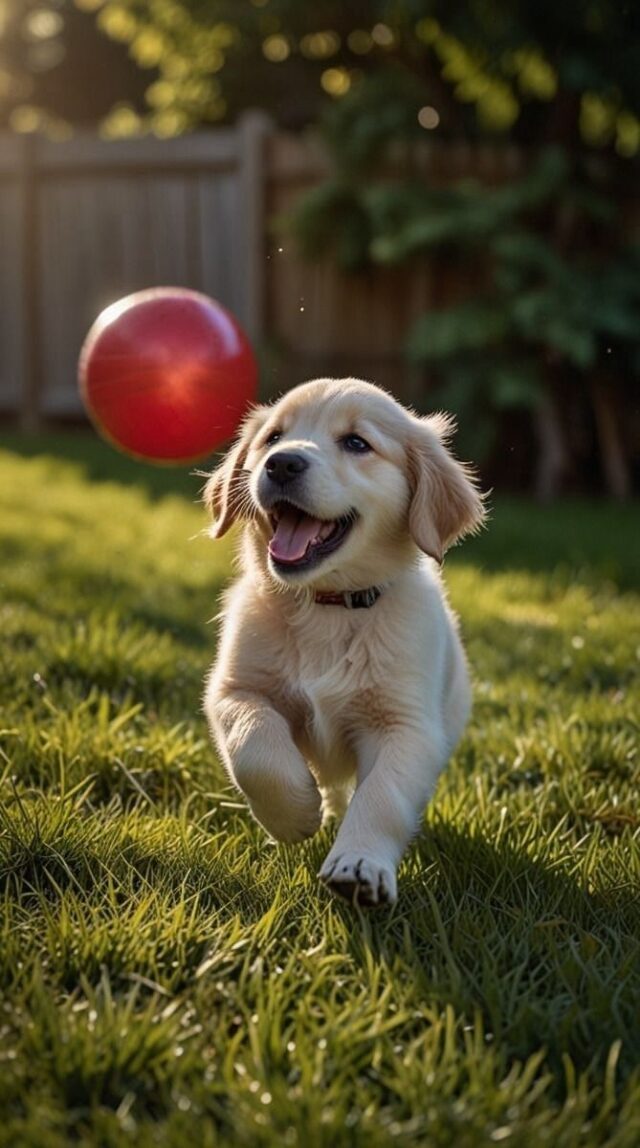There’s something absolutely magical about bringing a Labrador Retriever puppy into your life. With their sparkling eyes, playful nature, and endless affection, Lab puppies quickly steal your heart — and your socks too!
But raising a Labrador puppy is also a big responsibility. They need the right care, training, nutrition, and attention to grow into the loving, loyal companions they’re famous for being.
In this complete guide, we’ll walk you through everything you need to know to give your Labrador puppy the best start in life!
🍼 1. First Days at Home: Settling Your Puppy
Bringing home your Lab puppy is exciting but can also be overwhelming — for both of you!
Prepare before they arrive:
- A cozy bed
- Food and water bowls
- Puppy food (as recommended by the breeder or vet)
- Safe chew toys
- Puppy-proofed home (hide electrical cords, remove small objects)
First week tips:
- Let them explore their new home slowly.
- Keep a consistent routine for feeding, potty breaks, and sleeping.
- Provide a quiet, comfortable space for them to rest — puppies sleep 18–20 hours a day!
Pro Tip: Carry a soft toy from the breeder’s home — the familiar smell can comfort them.
🥣 2. Nutrition: Feeding Your Lab Puppy Right
Good nutrition is crucial during the early months when your puppy is growing fast.
Feeding guidelines:
- Choose a high-quality puppy food formulated for large breeds.
- Feed small, frequent meals (3–4 times a day until 6 months old, then twice a day).
- Always provide fresh, clean water.
Foods to avoid:
- Chocolate
- Grapes and raisins
- Onions and garlic
- Human junk food
Healthy treats: Carrot sticks, apple slices (no seeds), or special puppy biscuits.
Important: Don’t overfeed! Labs are prone to obesity, even as puppies.
🚽 3. Potty Training: Patience is Key
Potty training is one of the first major lessons for your Labrador puppy.
Tips for success:
- Take them out after eating, drinking, playing, and waking up.
- Use the same spot outdoors to help them associate the smell.
- Praise and reward immediately after they go in the right place.
- Be patient — accidents will happen!
Pro Tip: Crate training helps with potty training and gives your puppy a safe den-like space.
🎾 4. Exercise & Play: Burn That Puppy Energy!
Labrador puppies are bundles of energy, but too much exercise too soon can harm their growing joints.
General rule: 5 minutes of structured exercise per month of age (e.g., 15 minutes for a 3-month-old puppy, twice a day).
Fun activities:
- Short walks
- Gentle play sessions
- Tug-of-war
- Fetch with soft toys
Avoid: Long runs, jumping off furniture, or climbing stairs frequently when they are very young.
Bonus: Mental exercise (like training games or puzzle toys) tires them out too!
🧼 5. Grooming: Start Young for a Lifetime of Good Habits
Labradors are moderate shedders with a water-resistant coat.
Basic grooming routine:
- Brush 2–3 times a week (daily during shedding seasons).
- Bath only when needed (puppy-specific gentle shampoo).
- Clean ears regularly (Labs are prone to ear infections).
- Brush teeth several times a week.
Starting grooming early helps your Lab see it as a positive experience!
🧠 6. Training Your Lab Puppy: Smart, Eager, and Sometimes Naughty
Labs are incredibly intelligent and eager to please — perfect for training!
Start with basics:
- Sit
- Stay
- Come
- Leave it
- Walking nicely on a leash
Training tips:
- Use positive reinforcement (treats, praise, play).
- Keep sessions short and fun (5–10 minutes).
- Be consistent with commands and rules.
- Socialize early — expose them to different people, dogs, sounds, and environments.
Remember: A bored Lab is a mischievous Lab! Regular training keeps them mentally stimulated.
🏥 7. Health Care: Vet Visits and Vaccinations
Keeping your Lab puppy healthy starts with regular vet check-ups.
Essential health tasks:
- Vaccination schedule (distemper, parvo, rabies, etc.)
- Deworming
- Flea and tick prevention
- Microchipping
- Spaying/neutering (discuss the right timing with your vet)
Also, monitor their growth — rapid weight gain can cause joint problems later.

❤️ 8. The Emotional Side: Building a Strong Bond
Labradors are famously affectionate and crave connection with their family.
Ways to bond:
- Cuddle and spend quiet time together.
- Positive training sessions.
- Regular playtime.
- Trust-building through gentle handling and consistency.
Building a strong emotional bond early will shape your Lab into a loyal, confident adult dog.
📚 Final Thoughts
Raising a Labrador puppy is a beautiful journey full of wagging tails, goofy smiles, and unconditional love. It’s not always easy — there will be chewed shoes, little accidents, and lots of sleepless nights — but every moment is worth it.
With the right care, a lot of patience, and plenty of love, your Labrador puppy will grow into the happy, healthy, loyal companion you dreamed of.
Welcome to a lifetime of adventures with your Lab! 🐶💛



